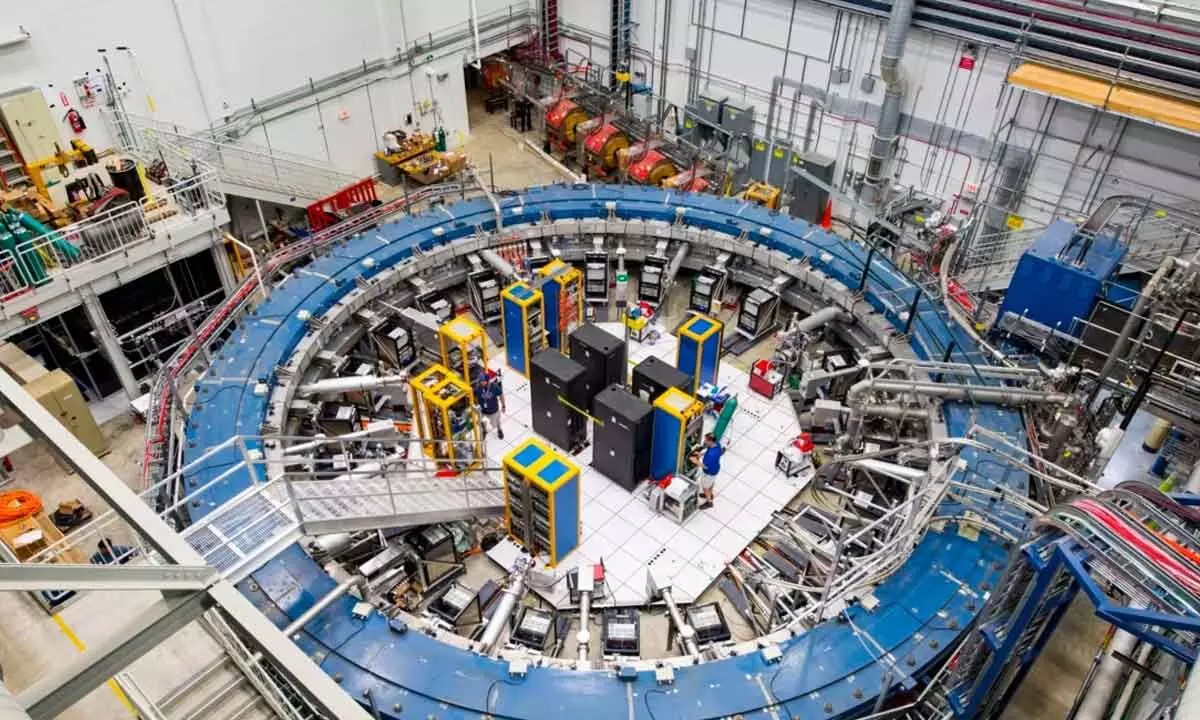Live
- Post-poll violence breaks out in Jharkhand after announcement of results
- Spiking to be made criminal offence: British PM
- MP CM in UK to woo investors thanks High Commission, diaspora for support (Ld)
- India's Stunning 295-Run Victory Over Australia: Bumrah and Siraj Lead Charge
- Chinese rocket debris reenters atmosphere, mostly burning up
- Winter Session of Parliament Begins with Key Bills and Heated Debates
- BGT 2024-25: India begin trophy defence with triumph over Australia in Perth
- Supreme Court trashes pleas challenging insertion of ‘Socialist’, ‘Secular’ in Preamble to Constitution
- iPhone production reaches $10 bn in India in April-Oct, creates 1.75 lakh direct jobs in 4 years
- Australian govt orders national review into school bullying
Just In
Scientists edgy about potential new force of nature


The scientific world is agog with the news that the researchers may be on the brink of discovering evidence of a fifth fundamental force. So far, the...
The scientific world is agog with the news that the researchers may be on the brink of discovering evidence of a fifth fundamental force. So far, the modern knowledge tells us, the universe is made up of fundamental particles and controlled by four fundamental forces. The Standard Model explains these fundamental particles and three of the four forces. If they manage to prove the existence of this force, it would be entirely new physics outside the Standard Model.
In 2021, a team from Fermilab ran an experiment called Muon g-2 (pronounced “muon g minus two”). Just recently, they announced that they had managed to replicate their results with twice the precision. They implied that we may be about to uncover a fifth, previously unknown fundamental force that flies in the face of the entire Standard Model of particle physics. As far as we know, everything in existence is composed of fundamental particles and controlled by fundamental forces. There are four known fundamental forces of nature - electromagnetism, the strong nuclear force, the weak nuclear force, and gravity. The Standard Model is the description of the way that all of those fundamental particles and forces (except for gravity, which is in its own bucket) interact. However, the Standard Model is also not complete. Quantum mechanics is always challenging to us.
All our knowledge can’t describe everything. No doubt, we’ve been able to perform more and more complex experiments, we’ve been able to see more and more phenomena first-hand that can’t be explained by the Standard Model. In the latest experiment, the researchers shot a bunch of muons through a superconducting magnetic storage ring, where they spun around and around about 1,000 times at nearly the speed of light. The ring was filled with detectors that allowed researchers to make very precise measurements of the muons’ magnetic moments, and once they had them, they were able to compare those measurements to the predictions of the Standard Model. These two did not match. Why is it so? They don’t know yet. it would take time to know these issues.
Only point that is understood is that they have missed something. As the experiment is based on the Standard Model, it could safely be presumed that this model is missing something. “If the measurements don’t line up with the prediction, that could be a sign that there is some unknown particle appearing in the loops—which could, for example, be the carrier of a fifth force,” particle physicist Jon Butterworth told the media the other day. Attempts will be made to seek a greater precision. Any answer from this would fundamentally alter fundamental physics and its concepts. It will also lead to further exploration of the universe etc. We are not talking of new discoveries here. It is all about a new science. The physics world is all set to be rattled with this and the previous knowledge based on the old models might become redundant soon!
The body of scientific knowledge is continually evolving. Scientists don’t simply add more facts to our scientific repository; they question new evidence as it comes in, and they repeatedly re-examine prior conclusions. That means that the body of scientific knowledge isn’t just growing, it’s also changing. Here is a plea for people: please accept any particular scientific consensus, or any particular public fact. Embrace the value of considering alternative possibilities, and evaluating those possibilities against the best evidence and arguments at our disposal.

© 2024 Hyderabad Media House Limited/The Hans India. All rights reserved. Powered by hocalwire.com






